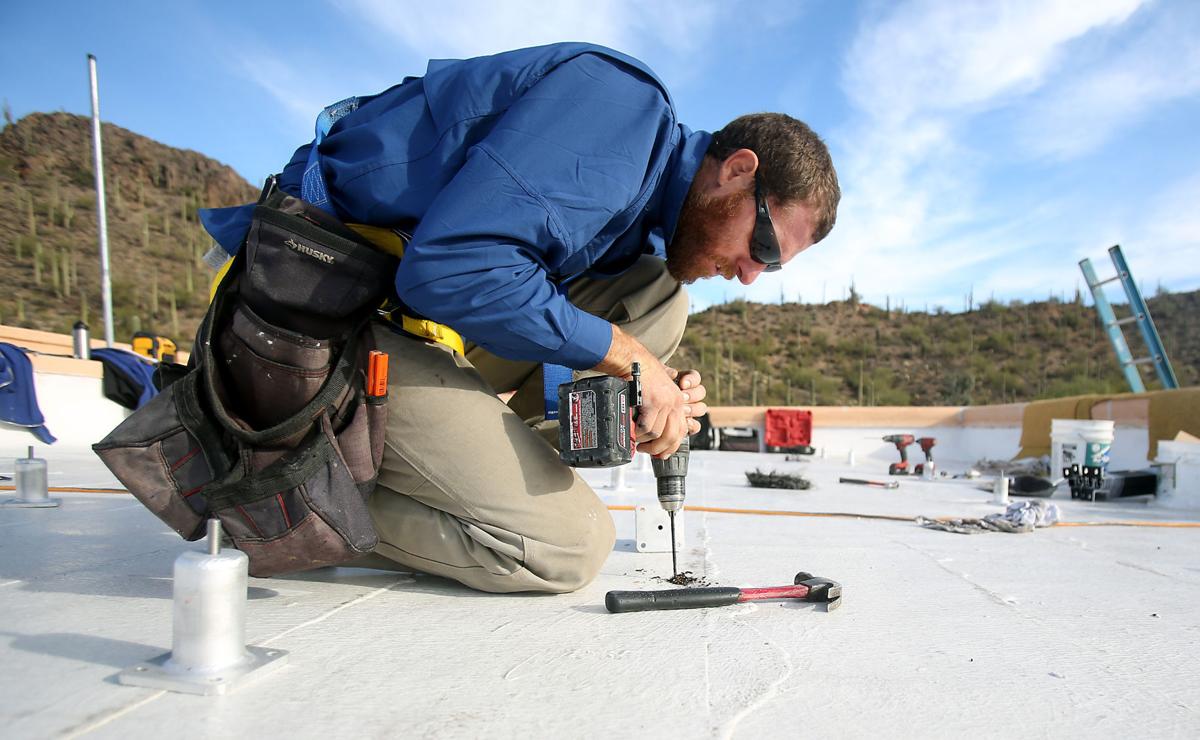It looks like customers of Tucson Electric Power Co. will have until at least mid-July to file applications to connect rooftop solar systems and still benefit from retail net metering.
That general time frame became clear Thursday, when an Arizona Corporation Commission hearing judge tentatively outlined a schedule for the second phase of TEP’s pending rate case, focusing on treatment of rooftop solar customers.
Pending general rate cases filed by TEP, Arizona Public Service Co. and other utilities were put on hold while the Corporation Commission hashed out new rules affecting rooftop-solar customers statewide. Those cases will now enter a second phase to address the rooftop solar issue.
The commission voted in later December to replace the current net-metering rules — which credit customers monthly for excess solar generation at the full retail rate — with new solar export rates based on cost studies for each utility.
On Thursday, a Corporation Commission administrative law judge verbally agreed to a partial schedule for the second phase of TEP’s case, proposed by TEP, though a written order had yet to be filed as of Friday.
The partial schedule calls for written testimony to be filed through June 19, after which hearings in Tucson will be scheduled by the judge, Jane Rodda.
Under the tentative schedule, the TEP hearings would likely start sometime in July and extend for a week or more. After the hearings conclude, the judge will make a recommendation to the full Corporation Commission for a final decision that looks like it will come no sooner than late July or early August.
Rodda also agreed that the TEP solar-rate hearings will cover common issues and testimony to guide the second phase of a pending rate case filed by UNS Electric, a rural sister utility to TEP that serves Santa Cruz and Mohave counties.
The timing of the final rate ruling is critical because the commission’s December ruling “grandfathers” customers under the current net-metering rules for 20 years, if they apply to interconnect rooftop solar systems before their utilities’ new rates go into effect.
Customers who apply for interconnection after new rates go into effect will fall under the new, and presumably much lower, solar export rates.
The new export rate will be set for each utility based on a proxy rate for power from utility-scale solar farms or on studies of the costs avoided by solar over a rolling, five-year period.
TEP is in the process of providing data on the cost of energy from its utility-scale solar farms, to help set the proxy rate.
The utility previously proposed using a credit rate of about 6 cents per kilowatt hour based on recent solar-farm energy prices, compared with the retail rate of about 11.5 cents per kWh used in the current net-metering rules.
TEP and other utilities contend that rooftop solar customers don’t pay their fair share of fixed system costs through regular rates because net metering allows them to offset most of their bills, shifting those costs to non-solar ratepayers.
Solar advocates dispute those assertions, contending rooftop solar provides long-term financial and environmental benefits, and some say eliminating net metering will devastate the industry in Arizona.
Utilities and solar-industry officials expect a rush of new rooftop-solar interconnection applications from customers eager to be grandfathered under current net-metering rules.





